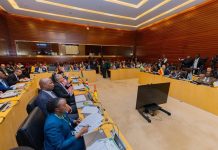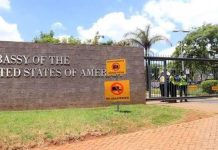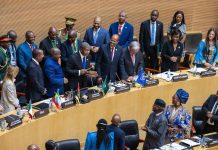Reported by
Fardah N Kulumba
Since 11 May 2021, Somalia-Kenya diplomatic relations came to a standstill again after Kenya Civil Aviation Authority suspended all flights to and from Somalia. The suspension came days after Qatar Emir Sheikh Tamim bin Hamad Al Thani brokered a breakthrough and the two countries announced as they had restored diplomatic ties.
A few days after diplomatic relations between Mogadishu and Nairobi appeared to be thawing, Kenya trucks filled with Khats commonly known as milla rushed to Nairobi Wilson Airport in the hope of shipping tons of stimulant hugely popular in Somalia. Unfortunately they learnt that the government of Kenya had suspended all commercial flights to Somalia for three months until August 2021.
Salim Khan, khat farmer told Africa-press that the ban will not only affect Kenya and Somalia but other neighbouring countries as well who supply Somali through Kenya. For almost six months , diplomatic ties between the two nations seemed headed for disaster. Somalia reached out , and Kenya responded positively but behind the curtains huge differences remain.
Somalia is an important market for Kenyan khat, which bring in around 16 million Kenyan shillings from daily exports. “We don’t see any relations between Kenya and Somali at the moment,” Hamidi Aden, a resident of Mogadishu, told DW.
Birth of tensions
The relationship between Kenya and Somalia has been tense over the ownership of potential oil gas deposits, some of which lie off the coast Jubbaland. Somalia cut ties with Kenya on December 15, 2020 accusing Kenya of interference in its international affairs, after Kenya hosted the leadership of Somaliland, a breakaway state not recognised by the central government in Mogadishu.
In November, Somalia expelled Kenya’s ambassador and recalled its own from Nairobi after accusing Kenya of interfering in the electoral process in Jubbaland, one of Somalia’s five semi autonomous state. In February 2019, Kenya also recalled its ambassador after Mogadishu decided to auction oil and gas exploration blocks at the centre of their maritime rights dispute. And the two nations revived ties in November the same year.
What is behind the tension?
According to the Article published by DW, since independence the East African neighbours who share a 682-kilometre border have had bumpy relations. Both sides have been embroiled in border disputes, petty skirmishes and in some cases bloody massacres. In 2011 Kenya sent troops into Somalia following a spate of tourist kidnappings on its coast. Kenya has hosted hundreds of thousands of refugees since the fall of Somalia’s dictotor Siad Barre in 1991.
But President Uhuru Kenyatta has on several occasions threatened to shut down Dadaab, arguably the world’s largest refugee camp. Kenyan government has given the united Nations until 2022 to find a new home for most Somali refugees. “Kenya is well aware that closing Dadaab will not empty the camp since many residents have no intention to return to Somalia,” said Brayden.
Kenya and Somalia are also engaged in a long-running maritime territorial feud across the Indian ocean believed to hold valuable oil and gas reserve and the dispute is now at the International court of Justice.
“These are genuine issues of strategic interest to both countries, but they have been unnecessarily and artificially escalated on bot sides for the purposes of political leverage in the context of their bilateral dispute,” said Brayden the co-founder and and strategic adviser of Sahan.
Mohammed Odowa, DW correspondent in Mogadishu, said it is not about the maritime dispute, but Somalia also accuses Kenya of intervening in its political affairs and such missteps encourages the tension. “Both countries need to be serious about lowering the tensions and engage now with mindfulness talks to overcome the outstanding issues,” Odowa said.
Kenya side of the story
Kenya has consistently denied meddling but blaming Farmaajo of using it as a scapegoat to score political points at home. The co-founder and and strategic adviser of Sahan said: “The issue is primarily an internal Somali dispute over federalism, into which Kenya has been inexorably drawn.”
“When Kenyan troops first entered Somalia in 2011, there was no question that Al-Shabab needed to be driven from Kismayo and a new Jubaland administration established, under the auspices of the then Transitional Federal Government of Somalia,” Bryden told DW. Brayden also said he bilives that the prospects for normalization of relations as long as Farmaajo clings to office are close to zero.






